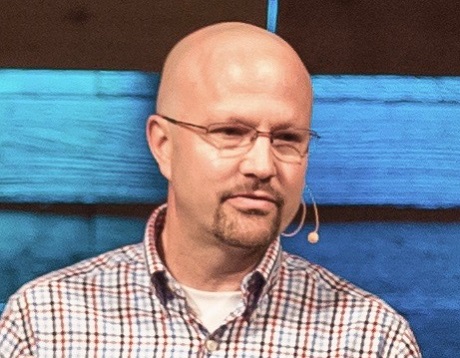- Calls to this hotline are currently being directed to Within Health, Fay or Eating Disorder Solutions
- Representatives are standing by 24/7 to help answer your questions
- All calls are confidential and HIPAA compliant
- There is no obligation or cost to call
- Eating Disorder Hope does not receive any commissions or fees dependent upon which provider you select
- Additional treatment providers are located on our directory or samhsa.gov
Observations of a Male Therapist Treating Eating Disorders

When I graduated with my counseling degree 17 years ago, I was one of 3 men in a class of 24 graduate students. Over two years, I was learning to work and relate in a primarily female environment, which prepared me well for my career in the field of treating eating disorders.
Not only do more females have eating disorders than males, but there is also a higher percentage of female professionals who treat eating disorders. Attend any conference for eating disorder professionals, and you will find about 85% of the attendees are females.
In my own counseling experience, I have worked with over 95% female clients and only a handful of men with eating disorders. I have been humbled by their willingness to trust me, especially when other men have hurt them.
Through both of these experiences—counseling women and working alongside professionals who are women—I’ve made several observations.
A Male Therapist Treating Eating Disorders
My Experience of Gender is Limited
I will never truly understand what it means to be a woman, or transgender, or a minority of any kind. I won’t understand power dynamics, body image pressures, or what it is like to feel invisible in a business meeting full of men.
I can listen and learn from those who are different from me, but I can’t know what it is like to fear sexual harassment regularly or wonder if my ideas are dismissed because of my gender, race, or sexual orientation.
My Experience of Body Image is Different
 Even though males in our culture can have negative body image and develop eating disorder behaviors, we will not know what it is like to see our gender sexualized and objectified in the way that women do. This means that, generally, men do not experience the same levels of distress about how body size and shape affects daily life.
Even though males in our culture can have negative body image and develop eating disorder behaviors, we will not know what it is like to see our gender sexualized and objectified in the way that women do. This means that, generally, men do not experience the same levels of distress about how body size and shape affects daily life.
Women are Much More Likely to be Victims of Sexual Abuse
I didn’t have to be a therapist treating eating disorders to learn this. The statistics are clear; women are far more likely to experience sexual harassment, rape, or other forms of sexual abuse than men. [1] However, these statistics take on names and faces when they sit across from you in a counseling session, and you hear the stories firsthand.
Male Therapists have a Unique Privilege and Responsibility
I don’t want to overstate the power of a therapist. I hesitate even to write the next lines for fear that they might be misconstrued that somehow being a male therapist is heroic. Yet, I do believe that God has allowed me to be a healing agent in the lives of some of my clients as I have tried to model safety, respect, and treat them with dignity.
So many clients have been harmed by men. Because of this, men who choose to work in the mental health profession have a unique privilege and responsibility to honor women as they pass through their care.
REFERENCES
1. National Sexual Violence Resource Center. (n.d.). Get Statistics. Retrieved March 10, 2020, from https://www.nsvrc.org/node/4737
About the Author:
 Travis Stewart, LPC has been mentoring others since 1992 and became a Licensed Professional Counselor in 2005. His counseling approach is relational and creative, helping people understand their story while also building hope for the future. Travis has experience with a wide variety of issues which might lead people to seek out professional counseling help.
Travis Stewart, LPC has been mentoring others since 1992 and became a Licensed Professional Counselor in 2005. His counseling approach is relational and creative, helping people understand their story while also building hope for the future. Travis has experience with a wide variety of issues which might lead people to seek out professional counseling help.
This includes a special interest in helping those with compulsive and addictive behaviors such as internet and screen addiction, eating disorders, anxiety, and perfectionism. Specifically, he has worked with eating disorders since 2003 and has learned from many of the field’s leading experts. He has worked with hundreds of individuals facing life-threatening eating disorders in all levels of treatment. His website is wtravisstewart.com
The opinions and views of our guest contributors are shared to provide a broad perspective on eating disorders. These are not necessarily the views of Eating Disorder Hope, but an effort to offer a discussion of various issues by different concerned individuals.
We at Eating Disorder Hope understand that eating disorders result from a combination of environmental and genetic factors. If you or a loved one are suffering from an eating disorder, please know that there is hope for you, and seek immediate professional help.
Published March 18, 2020, on EatingDisorderHope.com
Reviewed & Approved on March 18, 2020, by Jacquelyn Ekern MS, LPC

The EatingDisorderHope.com editorial team comprises experienced writers, editors, and medical reviewers specializing in eating disorders, treatment, and mental and behavioral health.

